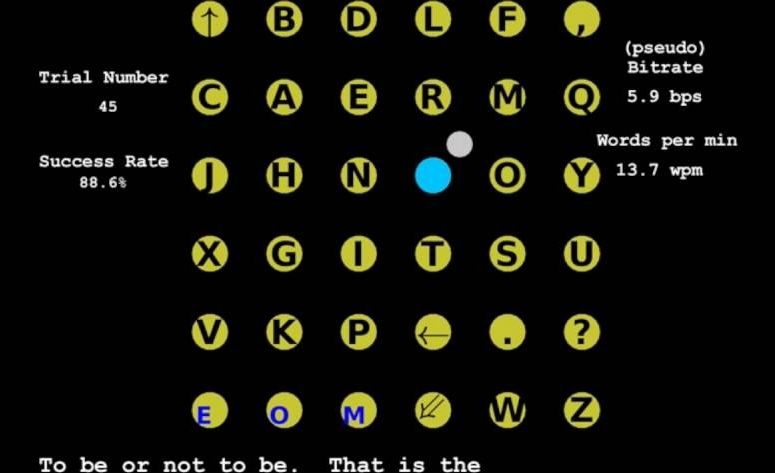Technology for reading signals directly from the brain developed by Stanford Bio-X scientists could provide a way for people with movement disorders to communicate.
The system directly reads brain signals to drive a cursor moving over a keyboard. In a pilot experiment conducted with monkeys, the animals were able to transcribe passages from the New York Times and Hamlet at a rate of 12 words per minute.
Earlier versions of the technology have already been tested successfully in people with paralysis, but the typing was slow and imprecise. This latest work tests improvements to the speed and accuracy of the technology that interprets brain signals and drives the cursor.
Read more
